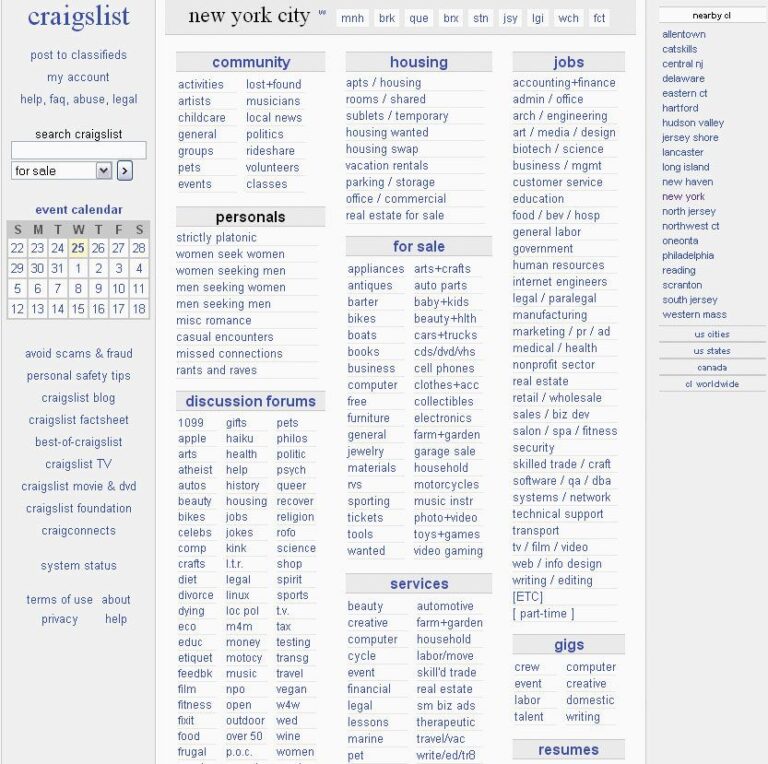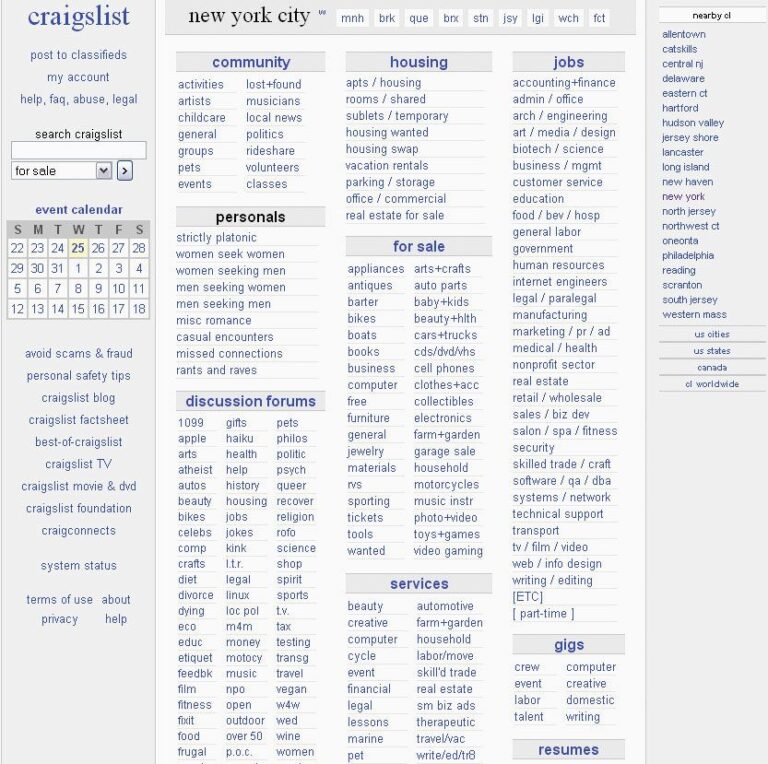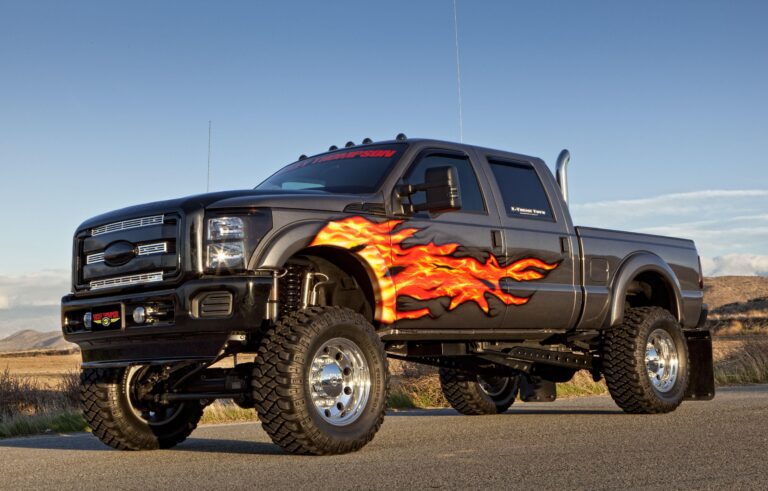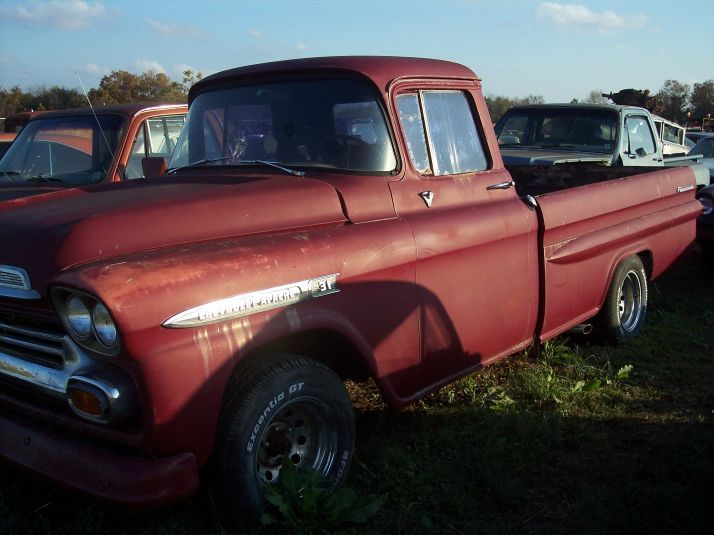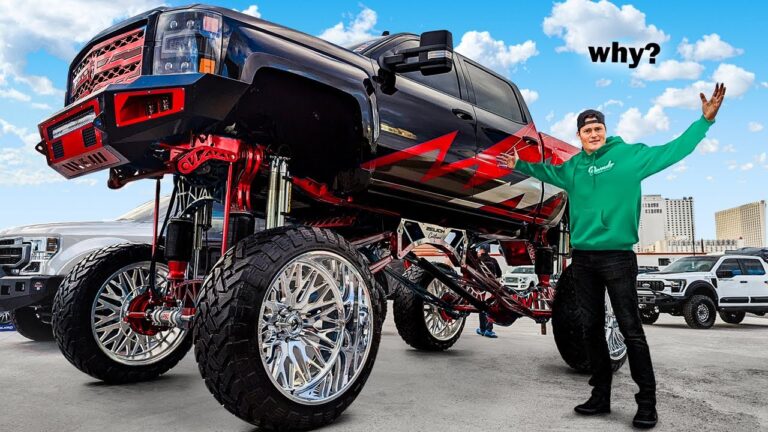Spotter Trucks For Sale Near Me: Your Comprehensive Guide to Finding the Right Yard Mule
Spotter Trucks For Sale Near Me: Your Comprehensive Guide to Finding the Right Yard Mule cars.truckstrend.com
In the fast-paced world of logistics, distribution, and manufacturing, efficiency is paramount. Every second counts, especially when it comes to moving goods within a confined space like a warehouse yard, distribution center, or intermodal terminal. This is where the unsung hero of the trucking world, the spotter truck (also known as a yard truck, terminal tractor, or shunt truck), comes into its own. These purpose-built vehicles are designed to quickly and safely move semi-trailers, significantly streamlining operations and reducing the strain on your over-the-road (OTR) fleet.
The quest for "Spotter Trucks For Sale Near Me" isn’t just about convenience; it’s about strategic procurement. Finding a local dealer or seller means easier inspections, reduced transportation costs, and often, more accessible after-sales support. This comprehensive guide will delve into everything you need to know about acquiring a spotter truck, helping you make an informed decision that drives your business forward.
Spotter Trucks For Sale Near Me: Your Comprehensive Guide to Finding the Right Yard Mule
Understanding the "Spotter Truck": More Than Just a Yard Mule
A spotter truck is a specialized piece of equipment engineered for the sole purpose of moving trailers around a private property or large facility. Unlike a conventional semi-truck, which is designed for long-haul highway travel, a spotter truck boasts unique features that make it ideal for yard operations:
- Short Wheelbase: Allows for an incredibly tight turning radius, essential for navigating crowded yards and tight docking bays.
- Elevated Cab: Provides superior visibility, allowing the operator to see all around the trailer and surrounding obstacles.
- Hydraulic Fifth Wheel Lift: This is a defining feature. Instead of cranking landing gear, the operator simply backs under a trailer, activates the hydraulic lift to raise the fifth wheel, picks up the trailer, moves it, and then lowers it. This dramatically reduces hook-up and unhook-up times.
- Rear-Facing Seat (Optional): Some models include a rear-facing seat, useful for training or for two-person operations.
- Heavy-Duty Frame and Drivetrain: Built to withstand constant stop-and-go movements, heavy loads, and often less-than-perfect yard surfaces.
- Simplified Controls: Designed for ease of use, often with automatic transmissions and intuitive hydraulic controls.

These characteristics make spotter trucks indispensable for improving productivity, enhancing safety, and optimizing yard management.
Benefits of Owning or Renting a Spotter Truck
Investing in a spotter truck, whether new or used, offers a multitude of advantages that can significantly impact your bottom line:
- Increased Efficiency and Productivity: The hydraulic fifth wheel lift system allows for rapid trailer hook-ups and unhook-ups, enabling operators to move more trailers in less time. This translates directly to faster loading/unloading cycles and improved throughput in your facility.
- Reduced Wear and Tear on OTR Tractors: Using your expensive highway trucks for yard spotting leads to excessive clutch wear, brake wear, and unnecessary engine idling. A dedicated spotter truck takes this abuse, preserving your OTR fleet for its intended purpose – long-haul transport – thus extending their lifespan and reducing maintenance costs.
- Enhanced Safety: Spotter trucks are designed with superior visibility and maneuverability, reducing the risk of accidents, collisions, and injuries within the yard. Their robust construction also offers better protection in low-speed impacts compared to an OTR truck.
- Improved Yard Organization: With a dedicated yard truck, trailers can be quickly repositioned, organized, and staged, leading to a more orderly and efficient yard. This minimizes congestion and improves traffic flow.
- Cost Savings in the Long Run: While there’s an initial investment, the long-term savings from reduced OTR truck maintenance, improved fuel efficiency (as OTR trucks aren’t idling for spotting), and increased operational efficiency often far outweigh the cost of a spotter truck.
Types of Spotter Trucks: Choosing the Right Mule for Your Yard
Spotter trucks come in various configurations, each suited to different operational needs. Understanding these distinctions is crucial for making the right choice:
- New vs. Used Spotter Trucks:
- New: Offers the latest technology, full manufacturer warranty, and complete customization options. The downside is a higher upfront cost and potentially a longer lead time for delivery.
- Used: A more budget-friendly option, providing immediate availability. While costs are lower, you’ll need to meticulously inspect the truck’s condition, maintenance history, and remaining lifespan of components. Warranties are typically limited or non-existent.
- Diesel vs. Electric/Alternative Fuel Spotter Trucks:
- Diesel: The traditional powerhouse, offering robust performance, extended range, and readily available fueling infrastructure. Ideal for heavy-duty, continuous operations, especially where charging infrastructure is limited.
- Electric: An increasingly popular choice for environmental benefits, lower operating costs (electricity is cheaper than diesel), and quieter operation. They produce zero emissions at the point of use, making them suitable for indoor or sensitive environments. However, they require charging infrastructure and might have a more limited range per charge, making them better for predictable, shorter-cycle operations. Propane and Compressed Natural Gas (CNG) options also exist but are less common.
- On-Road (DOT Compliant) vs. Off-Road (Yard-Only) Spotter Trucks:
- DOT Compliant: Equipped with full lighting, mirrors, braking systems, and other features required to legally operate on public roads. These are necessary if your operation requires moving trailers between non-contiguous yards or across public streets.
- Yard-Only: Designed exclusively for private property use. They lack many of the features required for road legality, making them simpler and often less expensive. They are perfect for self-contained distribution centers or manufacturing plants.
Finding Spotter Trucks For Sale Near You: A Strategic Approach
The "near me" aspect is key for practical reasons. Here’s how to strategically search:
- Online Marketplaces:
- Industry-Specific Platforms: Websites like TruckPaper.com, CommercialTruckTrader.com, MyLittleSalesman.com, and HeavyEquipmentTrader.com are excellent starting points. They allow you to filter by location, make, model, year, and condition.
- Auction Sites: Ritchie Bros. Auctioneers and IronPlanet frequently feature spotter trucks in their online and physical auctions. You can often bid remotely or attend local auctions.
- General Classifieds: For smaller operations or individual sellers, check local listings on Craigslist or Facebook Marketplace, but exercise extra caution regarding inspections.
- Dealer Networks:
- Manufacturer Dealers: Major manufacturers like Kalmar Ottawa, Capacity, and TICO have extensive dealer networks. Use their "dealer locator" tools on their websites to find the closest authorized dealer. These dealers often sell both new and certified used units.
- Heavy Equipment Dealers: Many dealers that sell forklifts, excavators, and other industrial equipment also carry spotter trucks.
- Local Searches:
- Google Maps: A simple search for "spotter trucks for sale [your city/state]" or "terminal tractor dealer [your zip code]" can yield surprisingly good results, pinpointing local businesses.
- Industrial Parks and Logistics Hubs: Drive through nearby industrial areas. You might spot "for sale" signs or discover local businesses that specialize in used equipment.
- Networking: Talk to other logistics managers, warehouse operators, or trucking companies in your area. Word-of-mouth recommendations can lead to private sales or overlooked opportunities.
Key Considerations When Buying a Spotter Truck
Once you’ve identified potential candidates, a thorough evaluation is essential.
- Condition and Maintenance History: This is paramount, especially for used trucks.
- Engine Hours: A critical indicator of wear. Lower hours generally mean more life left.
- Chassis and Frame: Look for cracks, excessive rust, or signs of past accidents.
- Hydraulic System: Inspect cylinders, hoses, and fluid levels for leaks. Test the fifth wheel lift thoroughly.
- Brakes and Tires: Check wear on pads, rotors, and tire tread depth.
- Fifth Wheel Assembly: Ensure it’s not excessively worn, damaged, or misaligned.
- Cab Interior: Check for functionality of controls, AC/heat, and overall ergonomics.
- Maintenance Records: Always ask for detailed service records. A well-documented history is a strong positive indicator.
- Engine Type and Horsepower: Match the engine’s power to the typical weight of trailers you’ll be moving.
- Transmission: While most spotters are automatic, check for smooth shifting and any unusual noises.
- DOT Compliance: If you need to operate on public roads, verify all necessary lights, mirrors, and safety features are present and functional.
- Budget: Beyond the purchase price, factor in potential repairs (for used trucks), fuel/electricity costs, insurance, and ongoing maintenance.
- After-Sale Support: Does the seller or dealer offer parts and service? Is there a reliable mechanic in your area who specializes in these trucks?
The Buying Process: From Inquiry to Ownership
- Define Your Needs: How many trailers do you move daily? What’s the average trailer weight? Do you need DOT compliance? Diesel or electric?
- Set a Realistic Budget: Consider both upfront cost and long-term operational expenses.
- Research Options "Near Me": Use the strategies outlined above to compile a shortlist.
- Contact Sellers/Dealers: Inquire about specifications, pricing, and maintenance history. Request photos or videos if the truck isn’t easily viewable.
- Schedule an Inspection: Never buy sight unseen. Ideally, have a qualified heavy equipment mechanic accompany you for a pre-purchase inspection.
- Negotiate Price: Don’t be afraid to negotiate, especially for used trucks.
- Arrange Financing: Explore options like dealer financing, bank loans, or equipment leasing.
- Complete Paperwork: Ensure all titles, bills of sale, and warranty documents (if applicable) are correctly filled out.
- Arrange Transport/Pickup: If buying out of state, factor in transportation costs. If local, plan for pickup.
Potential Challenges and Solutions
- Finding the "Perfect" Fit:
- Solution: Clearly define your operational needs before you start looking. Prioritize features that are essential for your specific yard.
- Hidden Issues (for used trucks):
- Solution: A comprehensive pre-purchase inspection by a third-party mechanic is non-negotiable. Request detailed maintenance records and run a VIN check.
- Financing:
- Solution: Explore multiple avenues – traditional banks, equipment finance companies, and dealer financing programs. Prepare your business’s financial documents in advance.
- Transportation Costs:
- Solution: Prioritize searching for "near me" options to minimize these costs. If buying further away, get multiple quotes from reputable heavy haul transport companies.
- Ongoing Maintenance:
- Solution: Budget for regular preventative maintenance. Establish a relationship with a local heavy equipment mechanic or a dealer service center. Consider a service contract if buying new.
- Operator Training:
- Solution: Ensure your operators are properly trained on the safe and efficient use of the spotter truck. Its operation is different from an OTR truck.
Price Table: Spotter Trucks For Sale Near Me (Estimated Ranges)
Please note: Prices are highly variable based on make, model, year, engine hours, condition, features, and geographical location. These are general estimates.
| Category/Type | New Spotter Truck (Estimated Range) | Used Spotter Truck (Estimated Range) | Key Factors Influencing Price |
|---|---|---|---|
| Basic Yard Model | $120,000 – $180,000 | $30,000 – $80,000 | Brand, engine size, basic features, overall condition, hours |
| DOT Compliant | $150,000 – $220,000 | $50,000 – $100,000+ | Road-legal components, higher build specification |
| Electric Model | $200,000 – $300,000+ | $80,000 – $150,000+ | Battery capacity, charging capabilities, technological features |
| Premium Features | Add $10,000 – $50,000 | Add $5,000 – $20,000 | Automated fifth wheel, advanced safety systems, ergonomic cab |
| Major Brands | Kalmar Ottawa, Capacity, TICO | All major brands | Brand reputation, resale value |
| Age/Hours | N/A | Lower hours = Higher Price | Generally, under 15,000 hours for good used value |
Frequently Asked Questions (FAQ)
Q1: What exactly is a spotter truck?
A1: A spotter truck, also known as a yard truck, terminal tractor, or shunt truck, is a specialized vehicle designed to move semi-trailers short distances within a private property like a warehouse yard, distribution center, or port terminal. It features a short wheelbase, elevated cab, and a hydraulic fifth wheel lift.
Q2: Why should I buy a spotter truck instead of just using my regular semi-truck for yard work?
A2: Dedicated spotter trucks significantly improve efficiency, reduce wear and tear on your expensive over-the-road (OTR) trucks (saving on fuel and maintenance), enhance safety due to better visibility and maneuverability, and streamline yard operations. Using an OTR truck for spotting can quickly lead to costly repairs and reduced lifespan for that vehicle.
Q3: What’s the main difference between new and used spotter trucks?
A3: New trucks offer the latest technology, full warranties, and customization, but at a higher cost. Used trucks are more budget-friendly and immediately available, but require thorough inspection of their condition, maintenance history, and potential for hidden issues, and typically come with limited or no warranty.
Q4: Are electric spotter trucks a viable option?
A4: Yes, electric spotter trucks are increasingly viable, especially for operations focused on sustainability, noise reduction, and lower operating costs. They produce zero emissions at the point of use and can be cheaper to "fuel" than diesel models. However, they require charging infrastructure and might have a more limited range, making them best suited for predictable, continuous operations.
Q5: How much does a spotter truck cost?
A5: The cost varies significantly. New basic yard models can range from $120,000 to $180,000, while DOT-compliant or electric models can exceed $200,000-$300,000. Used spotter trucks typically range from $30,000 to $100,000+, depending heavily on age, condition, and hours. Refer to the price table above for more details.
Q6: Where can I find spotter trucks for sale near me?
A6: You can find them on industry-specific online marketplaces (TruckPaper, CommercialTruckTrader), manufacturer dealer websites (Kalmar Ottawa, Capacity), heavy equipment auction sites (Ritchie Bros.), and by performing local Google searches ("spotter trucks for sale [your city]"). Networking with local logistics businesses can also yield leads.
Q7: What should I look for when inspecting a used spotter truck?
A7: Pay close attention to the engine (hours, leaks, sounds), hydraulic system (leaks, lift function), chassis and frame (rust, cracks, damage), fifth wheel assembly (wear, alignment), brakes, tires, and the overall condition of the cab. Always request maintenance records and consider a professional pre-purchase inspection.
Q8: Do I need a special license to operate a spotter truck?
A8: For yard-only operations on private property, a commercial driver’s license (CDL) is typically not required. However, if the spotter truck is DOT-compliant and will be operated on public roads, a CDL may be necessary, depending on local and state regulations. Always check your local Department of Motor Vehicles (DMV) requirements.
Q9: How long do spotter trucks typically last?
A9: With proper maintenance, a spotter truck can have a long service life, often exceeding 15,000 to 25,000 engine hours or more. Their longevity depends heavily on the maintenance regimen, operating conditions, and the quality of the initial build.
Conclusion
Acquiring the right spotter truck is a strategic investment that can profoundly impact the efficiency, safety, and profitability of your logistics or manufacturing operations. By understanding the different types available, knowing where to look for "Spotter Trucks For Sale Near Me," and conducting a thorough evaluation, you can make an informed decision that pays dividends for years to come. Whether you opt for a brand-new electric model or a well-maintained used diesel workhorse, a dedicated yard mule is an indispensable asset for any business striving for operational excellence in yard management.
